
Geboren 1983 in Kragujevac, Serbien, lebt und arbeitet die Künstlerin in Paris.
Bereits während ihres Studiums für angewandte Kunst und Wandmalerei an der Universität in Belgrad, beschäftigte sie sich mit der Thematik der Unterordnung und der Anpassung der Menschen an die vorgeschriebenen gesellschaftlichen Zwänge in ihren Performance -Darbietungen unter dem Titel “Schläfer”. Sie stellt dabei die Menschen als in ein enges aus Traditionen, Vorschriften und Zwängen geformtes Korsett eingepferchte Marionetten dar, die ihre Verpflichtungen auf Kosten ihrer Talente und Potentiale erledigen. Erstarrt, in Boxen uniform und sardinenartig eingeschlichtet, alles Individuelle nur mehr theoretisch vorhanden und ungenutzt schlummernd – in Gracners Werken als bunte Klekse, farbige Fäden oder lustige, kleine Figuren variantenreich dargestellt. Ihr immer fortwährendes Opus unter dem gleichen Namen erweitert sie ständig in ihren Gemälden und Mischtechniken.
Mit ihren großen reliefartigen Arbeiten (auf Holzhintergrund aufgetragene und geformte Masse aus Sand und Kleber sowie Bienenwachs mit Pigment, übermalt mit schwarzen Nuancen der Ölfarbe) gelingt ihr etwas Faszinierendes: Eine Serie von riesigen und schweren Bildern mit schwarzen Figuren auf schwarzem Untergrund „Die Schläfer“, die bei Tageslicht oder richtiger (bzw. geistiger) Beleuchtung hell und fröhlich erstrahlen (bzw. „aufwachen“). Diese mandalaartigen Werke laden den Betrachter auf ein Spiel ein, um seine eigene Perspektive und seine Wahrnehmung zu testen. Die Künstlerin verzichtet bewußt auf die klassische Komposition und den goldenen Schnitt, um die figurativen Formen sardinenartig und plastisch darzustellen. Und hier wird auch die Ambition der Künstlerin deutlich: Das Erwachen unserer Talente, ein freies Leben und kritisches Denken ohne einengende Zwänge und Gewohnheiten.
Das Wesen mit den 100 Milliarden Neuronen und unendlichen Verbindungsmöglichkeiten im Gehirn – der Mensch - durch den Menschen zum Systemerhalter missbraucht. Homo homini lupus est, kommt einem auch in diesem Kontext in den Sinn. Die Betrachtung eines Werkes von Danijela Gracner im Wohnzimmer oder im Büro wirkt wie ein Schutzschild dagegen. Es verhindert das Einschlafen, das Wegsehen, das Hinunterschlucken und das Vergessen der eigenen Identität, der eigenen Werte und der eigenen Sicht der Dinge – unsere Kreativität.
Geboren 1983 in Kragujevac, Serbien, lebt und arbeitet die Künstlerin in Paris.
Bereits während ihres Studiums für angewandte Kunst und Wandmalerei an der Universität in Belgrad, beschäftigte sie sich mit der Thematik der Unterordnung und der Anpassung der Menschen an die vorgeschriebenen gesellschaftlichen Zwänge in ihren Performance -Darbietungen unter dem Titel “Schläfer”. Sie stellt dabei die Menschen als in ein enges aus Traditionen, Vorschriften und Zwängen geformtes Korsett eingepferchte Marionetten dar, die ihre Verpflichtungen auf Kosten ihrer Talente und Potentiale erledigen. Erstarrt, in Boxen uniform und sardinenartig eingeschlichtet, alles Individuelle nur mehr theoretisch vorhanden und ungenutzt schlummernd – in Gracners Werken als bunte Klekse, farbige Fäden oder lustige, kleine Figuren variantenreich dargestellt. Ihr immer fortwährendes Opus unter dem gleichen Namen erweitert sie ständig in ihren Gemälden und Mischtechniken.
Mit ihren großen reliefartigen Arbeiten (auf Holzhintergrund aufgetragene und geformte Masse aus Sand und Kleber sowie Bienenwachs mit Pigment, übermalt mit schwarzen Nuancen der Ölfarbe) gelingt ihr etwas Faszinierendes: Eine Serie von riesigen und schweren Bildern mit schwarzen Figuren auf schwarzem Untergrund „Die Schläfer“, die bei Tageslicht oder richtiger (bzw. geistiger) Beleuchtung hell und fröhlich erstrahlen (bzw. „aufwachen“). Diese mandalaartigen Werke laden den Betrachter auf ein Spiel ein, um seine eigene Perspektive und seine Wahrnehmung zu testen. Die Künstlerin verzichtet bewußt auf die klassische Komposition und den goldenen Schnitt, um die figurativen Formen sardinenartig und plastisch darzustellen. Und hier wird auch die Ambition der Künstlerin deutlich: Das Erwachen unserer Talente, ein freies Leben und kritisches Denken ohne einengende Zwänge und Gewohnheiten.
Das Wesen mit den 100 Milliarden Neuronen und unendlichen Verbindungsmöglichkeiten im Gehirn – der Mensch - durch den Menschen zum Systemerhalter missbraucht. Homo homini lupus est, kommt einem auch in diesem Kontext in den Sinn. Die Betrachtung eines Werkes von Danijela Gracner im Wohnzimmer oder im Büro wirkt wie ein Schutzschild dagegen. Es verhindert das Einschlafen, das Wegsehen, das Hinunterschlucken und das Vergessen der eigenen Identität, der eigenen Werte und der eigenen Sicht der Dinge – unsere Kreativität.







.jpg)
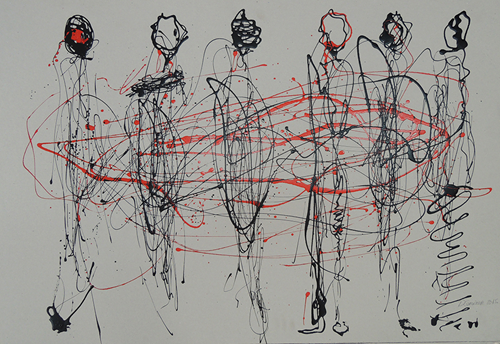

.jpg)


.jpg)



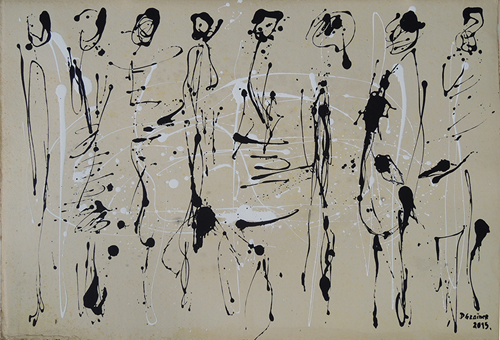
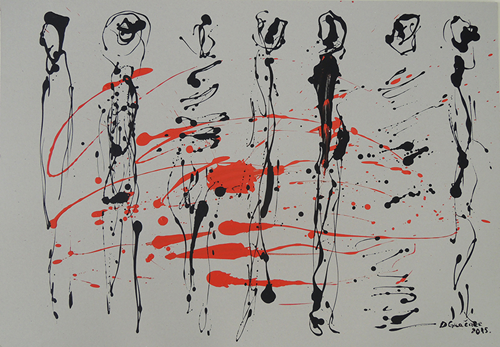
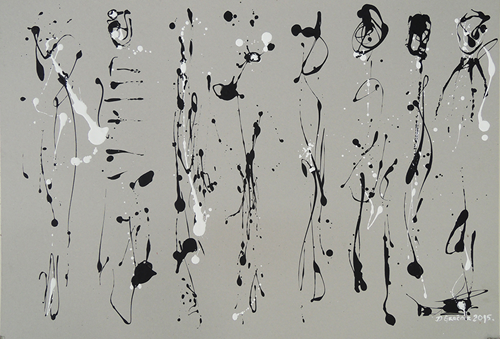
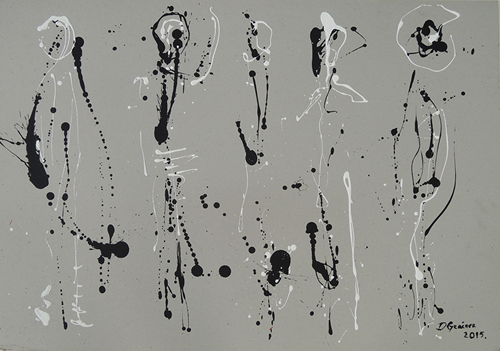

.jpg)


.jpg)



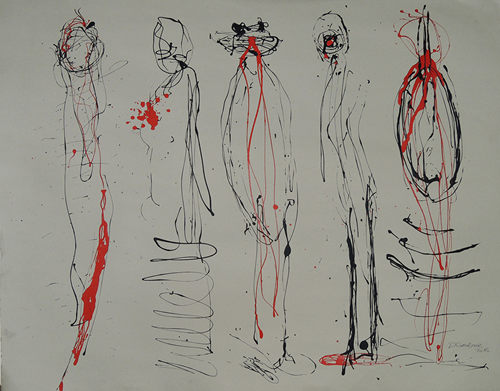



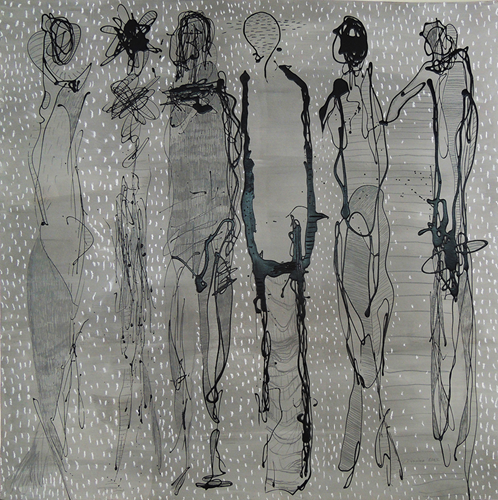




.jpg)
.jpg)


